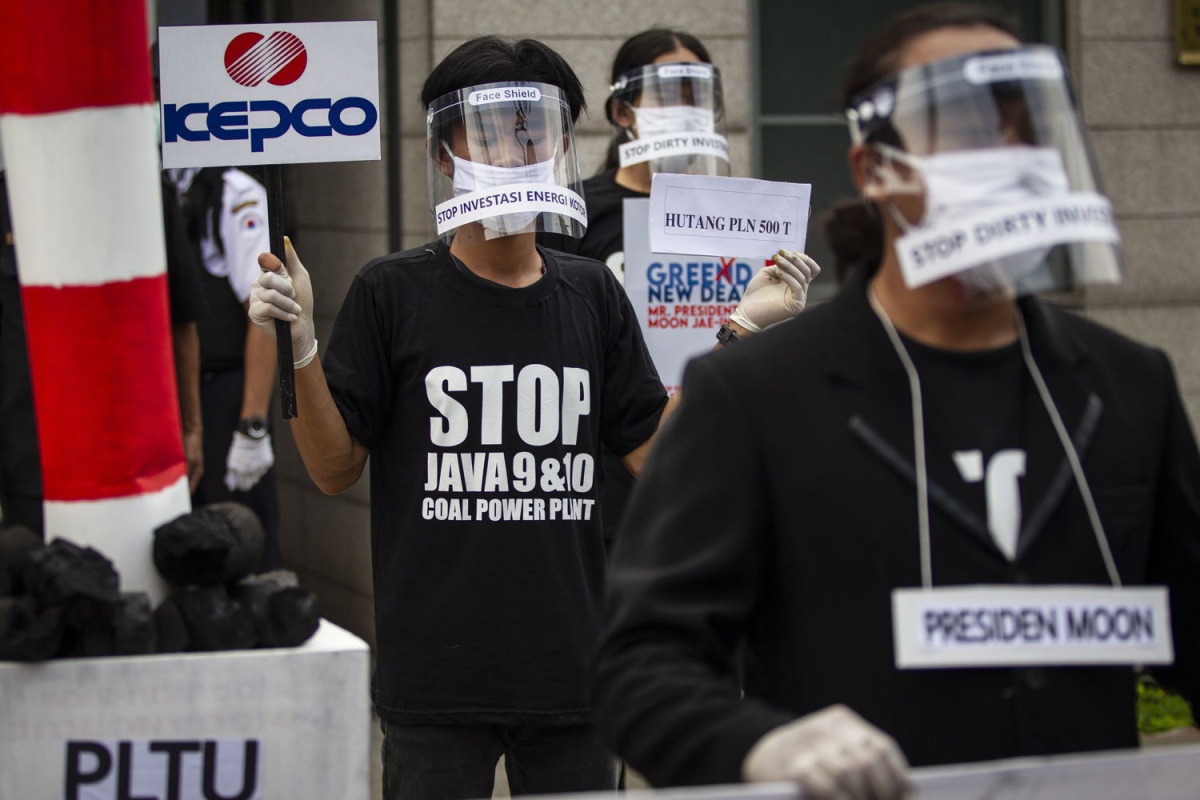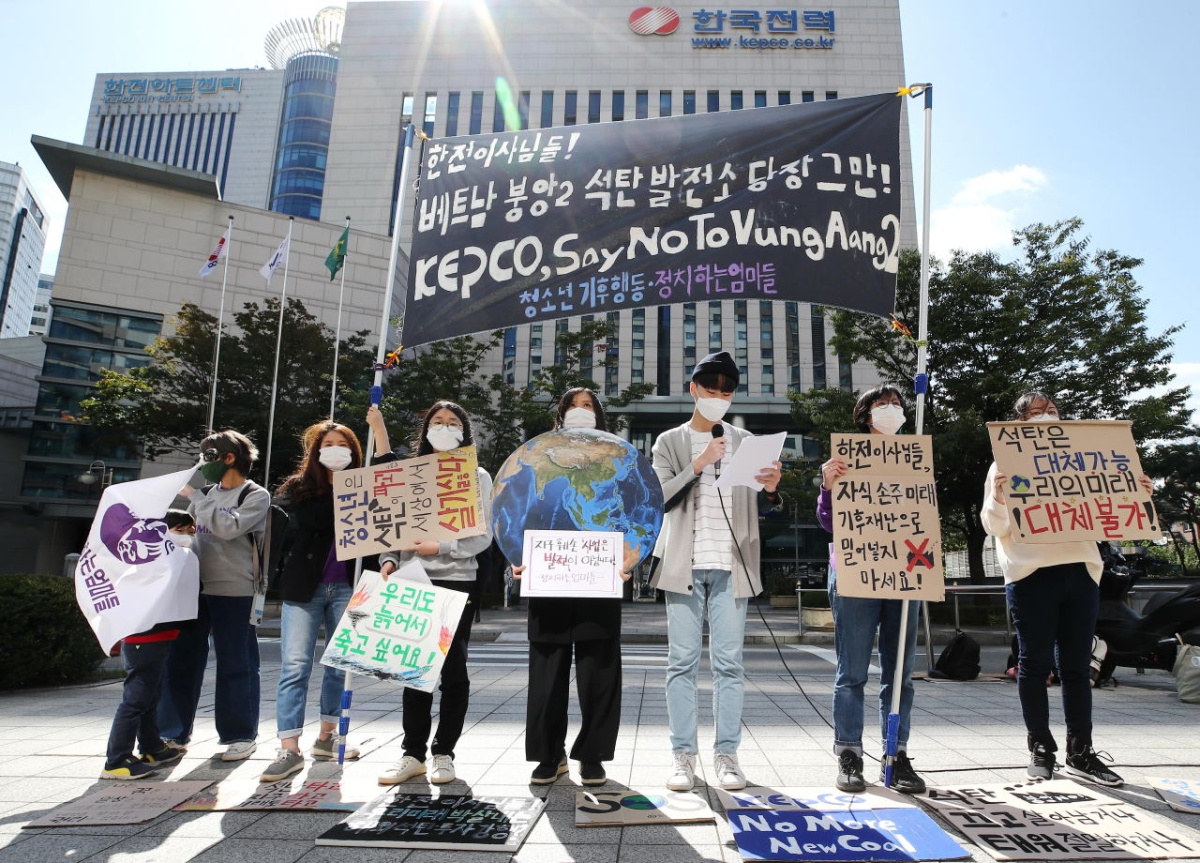KEPCO - Korea Electric Power Corporation
South Korea’s Korea Electric Power Corporation (KEPCO) is clinging to fossil fuels while facing financial turmoil, greenwashing accusations, and a credibility crisis.
KEPCO is one of the largest electricity utilities in the world. GCEL data shows that it owns and operates over 37 GW of coal-fired power plants. This includes the 6,100 MW Taean coal power plant, South Korea’s largest source of greenhouse gas emissions. Despite the urgent need to phase out coal by 2030 to align with the 1.5°C path, KEPCO only plans to phase out coal in 2050 – twenty years too late. To make matters worse, GOGEL data shows that the country’s coal plants will largely be replaced with new fossil gas-fired capacity, locking in carbon emissions for decades to come.

At the same time, KEPCO continues to expand coal projects abroad, with 3 controversial coal-fired power stations in Southeast Asia with a total capacity of 3,200 MW. These include the Vung Ang 2 coal power plant in Vietnam, which is fiercely opposed by investors and NGOs, and two 1,000 MW units at the Banten Suralaya complex in Indonesia. Banten Suralaya is already responsible for up to 1,640 premature deaths annually, and with the new coal power plants this number will grow even higher.
Now, KEPCO is facing criticisms for its attempts to greenwash its continued reliance on fossil fuels, and is considered to be backtracking on its already limited climate goals. This comes as the company’s debt-to-equity ratio exceeded 514% in the second half of 2024, showing that the company is at risk of going bankrupt.
Independent assessments paint a bleak picture. According to Climate Action 100+, KEPCO falls short of essential benchmarks for a credible transition strategy and lacks clear adherence to Just Transition standards. Instead of responsibly phasing out fossil fuels, KEPCO is planning to convert its aging coal plants to coal-ammonia or LNG-hydrogen co-firing, dodging any real emissions cuts. As a result, global investors have started to walk away. BNP Paribas has divested from KEPCO, citing coal policy violations, the Dutch pension fund APG exited in 2021, and Sweden’s AP7 followed in 2023, all rejecting KEPCO’s fossil-fuel-heavy strategy.

